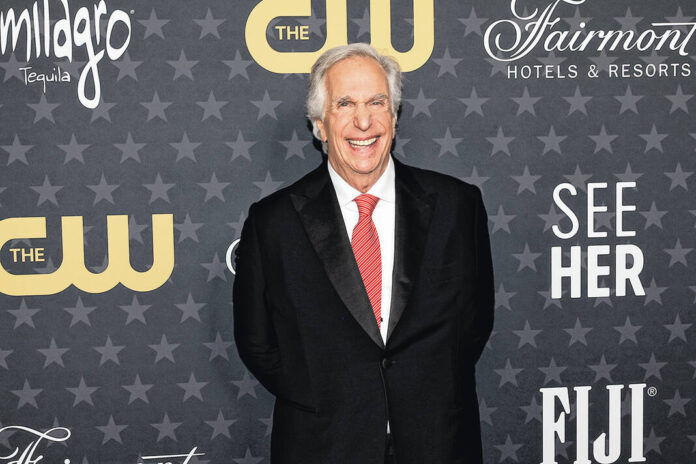Henry Winkler has been very public about his dyslexia. So when his youngest son Max suggested he write a memoir, Winkler immediately scoffed.
“I’m so dyslexic, how am I going to write it?” he said he told Max in an interview with The Atlanta Journal-Constitution. “I can’t spell or type.” His agent Esther Newberg had an easy solution: professional writer James Kaplan recorded 70 hours of their discussions and weaved it into a 244-page book called “Being Henry: The Fonz… and Beyond,” which came out Oct. 31.
“My wife said it’s amazing how he got my voice,” Winkler added. “It is me.”
The 77-year-old actor is known, of course, for his role as the Fonz on ABC’s “Happy Days” in the 1970s and 1980s as well as acting coach Gene Cousineau on the critically acclaimed dramatic HBO series “Barry.”
Winkler said in the book that a therapist in recent years has helped him deal with lingering anger toward his parents, who often treated him poorly as a child because he struggled so much in school. He was suffering from dyslexia, which wasn’t diagnosed until he was an adult.
But he said he always admired his Jewish parents for leaving Germany in 1939 for the United States, just before World War II began.
“The tenacity I feel in my life,” Winkler said, “must be in my DNA. The dyslexia, which is hereditary, is my DNA. The people who punished me and yelled at me gave it to me. That is a lot of hindsight. I was so befuddled until recently on how do you not see the person right in front of you?”
He said for more than 60 years of his life, “the seed of who I was was covered in Chernobyl-style cement. I had to, in the last seven or eight years, jackhammer my way down to start emotional growth and be really healthy for the first time.”
Those revelations, he said, helped him not only nab the nuanced and complicated character of acting coach Gene Cousineau in “Barry” but also win him an Emmy for the role. “The more you know, the more you become authentic,” he said. “I’m on my way. I’m not fully there, but I couldn’t have done Gene years ago. It came at the right time.”
Winkler had been nominated numerous times for acting Emmys in the past, but “Barry” was his first win at age 72. “Being nominated is great,” he said, “but ultimately to win is a lovely feeling.”
This all came as a latter-day surprise to him. Winkler said in the book that after a decade as the Fonz in “Happy Days,” he couldn’t find regular acting work and opted to produce movies and TV shows instead. “I could not get hired as an actor because I was so typecast,” he said, and he refused to do any characters reminiscent of the Fonz.
All these years later, he said there was a clear irony that he played such a cool character in the Fonz. As a child, he said, he always felt like an outsider, which shaped his myriad children’s books.
“In high school, I was always running, chasing the cool kids,” Winkler said. “’Hey! I’m great! I’ve changed over the summer! It was sad. I had no sense of self.”
The book, in fact, highlights how Winkler went from “being who I thought I should be into becoming who I actually am.”
Not that it’s easy: “I still have old habits of not giving myself credit, feeling less than. It runs smack into my actual self.”
The book features a lovely segment about the late John Ritter, a sitcom star peer who starred on ABC’s massive hit “Three’s Company” around the same time as Winkler’s reign as the Fonz. They became tight friends at the time, meeting weekly for dinner with their wives and later doing Broadway together.
“John was intense and funny and his motor was on overdrive,” Winkler said. “He was well-read and limitless in his talent. He could do anything and do it as effortlessly as he could fall-out-of-the-frame physical comedy.”
Winkler also became buds with Adam Sandler after Sandler name-dropped the actor in his famous “The Chanukah Song” in 1994.
“I called him and said thank you,” Winkler said. “He invited me to his house.” Winkler has since made appearances in multiple Sandler films.







